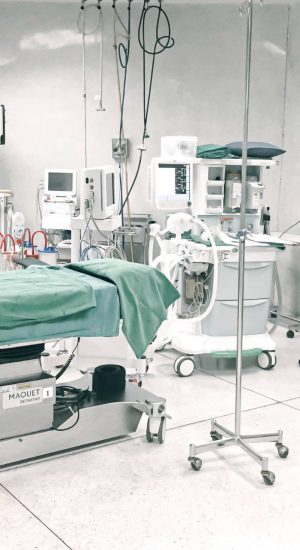What is IVF?
In Vitro Fertilization, or IVF, is a groundbreaking assisted reproductive technology that has transformed the lives of countless individuals and couples struggling with infertility. It involves a series of highly specialized procedures designed to overcome various fertility challenges and increase the chances of achieving a successful pregnancy.
Our Expertise
At Creation Fertility Centre, our team of experienced fertility specialists and embryologists are dedicated to guiding you through every step of your IVF journey. We understand that the path to parenthood can be filled with emotions and uncertainties, and we are here to provide compassionate care and expertise to help you navigate this process.
- Expert Doctors
- Cutting-Edge Technology
- Affordable Prices
- Great Success Rate


10 Years of Experience in The IVF Industry
The IVF Process
The IVF process involves carefully combining eggs and sperm in a laboratory setting to facilitate fertilization and increase the chances of a successful pregnancy.
Ovarian Stimulation
To maximize the chances of success, we begin with ovarian stimulation. This involves the administration of medication to encourage the development of multiple mature eggs within your ovaries.
Egg Retrieval
Once the eggs have reached the optimal stage of development, we perform a minor surgical procedure to retrieve them from the ovaries.
Sperm Collection
On the same day as egg retrieval, we collect a sperm sample from the male partner or a sperm donor, depending on your specific situation.
Fertilization
In the laboratory, we carefully combine the collected eggs and sperm to facilitate fertilization. This can occur through traditional insemination or through the highly precise method known as Intracytoplasmic Sperm Injection (ICSI).
Embryo Culture
Embryos are cultured and monitored for several days, allowing us to select the healthiest ones for transfer.
Embryo Transfer
Once the embryos have developed, one or more of them are transferred into the woman’s uterus, with the hope that they will implant and lead to a successful pregnancy.
Support and Monitoring
We provide comprehensive support and monitoring throughout the IVF cycle, including hormonal support and careful observation of the developing pregnancy.
Frequently Asked Questions (FAQs)
Here are some frequently asked questions (FAQ) related to fertility and the IVF process
Infertility is the inability to conceive after one year of regular, unprotected intercourse (or six months for women over 35). It’s essential to seek fertility evaluation if you’ve been trying unsuccessfully for this duration.
Common causes include ovulatory disorders, blocked fallopian tubes, male factor infertility, endometriosis, and unexplained infertility.
IVF involves fertilizing eggs and sperm outside the body, while IUI involves placing sperm directly into the uterus. IVF is typically recommended for more complex fertility issues.
Success rates can vary based on age, underlying causes of infertility, and other factors. Your fertility specialist can provide personalized success rate estimates during the consultation.
IVF carries some risks, such as multiple pregnancies, ovarian hyperstimulation syndrome (OHSS), and the possibility of failed cycles. Your doctor will discuss these risks and potential side effects in detail.
Insurance coverage for IVF varies widely and depends on your provider and policy. It’s essential to check with your insurance company to understand your specific coverage.
The number of embryos transferred varies based on your age, embryo quality, and specific circumstances. Doctors aim to minimize the risk of multiple pregnancies while maximizing the chances of success.
Maintaining a healthy lifestyle with a balanced diet, regular exercise, and stress management can positively impact IVF outcomes. Your doctor may provide specific recommendations.
Yes, sperm and egg donors can be used in IVF when needed. This option is available to individuals or couples with fertility challenges related to sperm or egg quality.
Embryo transfer is a relatively simple and painless procedure. It involves placing one or more selected embryos into the uterus using a thin catheter. Most patients describe it as similar to a Pap smear.
